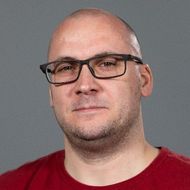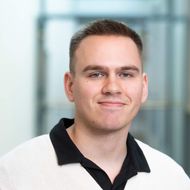HSE Faculty of Computer Science Organises Its First Software Engineering Winter School

From February 14–18, the HSE Faculty of Computer Science organised its first international winter school dedicated to software engineering. The event was supported by JetBrains, Innopolis University, and Schaffhausen Institute of Technology.
A total of 837 participants from Russia, Europe, Asia, Africa, South America, North America, and Australia registered for the school.
The key topics of the school were modelling and tools, software architectures, software development methodology, coding and code management, team management, testing, DevOps, CI/CD, empirical software engineering, software engineering for researchers, and software process mining.
The school included lectures by Bertrand Meyer (Schaffhausen Institute of Technology), Yvonne Dittrich and Helge Pfeiffer (IT University of Copenhagen), Anton Arhipov and Alexander Nozik (JetBrains), Frank Pan (AliExpress Russia), Alexei Lisitsa (University of Liverpool), Sergey Shershakov and Irina Lomazova (HSE University FCS) and other representatives of academia and the industry. The full programme is available on the official website.
The participants shared their impressions of the school.

Sergey Shershakov, organiser
‘The Winter School on Software Engineering was held at the HSE Faculty of Computer Science for the first time. We managed to bring together leading experts from all over the world who work in all sorts of fields related to software engineering, from testing and verification to the development of new programming languages. The programme turned out to be intensive. Each of its five days was full of presentations, workshops and discussions. I am happy to see that the participants were active and kept attending the events despite their tiredness—many classes ended late at night.
We loved the idea of themed days. For example, the second day of the school was Kotlin Day. It featured presentations and workshops by JetBrains on the Kotlin programming language and its applications. That day was one of the most intensive and complicated, but also the most memorable. Next time, we are planning to organise more themed days about other topics as well.
Speaking of the next time, my colleagues and I feel inspired by the success of the first school and are going to make it a regular event, perhaps an annual one. I hope that our idea will be implemented and that next time, we will make the summer school on software engineering even more interesting!
I am very grateful to all school speakers and participants for supporting our idea and implementing it at the highest level.’

Anton Arhipov, Kotlin Developer Advocate, JetBrains
‘I am happy that a whole day was dedicated to Kotlin. This confirms that Kotlin is a serious programming language that is in high demand in the industry. I was also happy to talk about the basics of Kotlin online, since it makes the information accessible to people anywhere. But lectures on their own aren’t enough! I believe in a practical approach to learning, and highly recommend that students apply the knowledge they gained to their future projects.’

Tobias Lima-Engelmann, Uppsala University
‘The school covered a lot of topics, from testing methods to more abstract concepts of modelling. The practical parts were also useful and helped me learn something new. I know that it is difficult to communicate a lot in such a short period of time, but I believe the organisers succeeded in doing so. I also loved the online format: it is practical and allows a lot of participants to get involved. I believe I gained a lot of new knowledge on software engineering.’

Alessandro Benetti, University of Padua
‘Overall, the school turned out to be very useful and interesting. It was very well organised. The Kotlin Day was particularly useful, and had about nine hours of lectures and practical training.’

Johan Bergelin, Mälardalen University
‘I liked the school thanks to the variety of its lectures and the people. The participants were very diverse, which definitely helped everyone to broaden their outlook. For me as a doctoral student, many of the presentations were very interesting and served as a good introduction to topics that could turn out to be useful. I also had a chance to talk to other students and professionals. The online format worked very well. It might have been less interesting for the speakers due to the lack of feedback, but on the other hand, it allows more people to participate. I am satisfied with how the school turned out.’

Tobias Bindewald, HSE Graduate School of Business
‘I am very thankful to all the organisers and speakers. It was an intense, but informative week. I particularly liked that each speaker had professional experience: they really knew what they were talking about. For me personally, the Kotlin Day with Anton Arhipov and Alexander Nozik was the most memorable event. I am definitely going to use Kotlin in the future. I am looking forward to the next event!’
Johan Bergelin's photo courtesy of Mälardalen University
See also:
HSE University Presents Its Developments at the Positive Hack Days Fest
On May 22-24, HSE University presented its developments and degree programmes at the main IT event of the year, the Positive Hack Days International Cyber Fest at Luzhniki. Students and specialists of the Centre for Software Development and Digital Services of the Moscow Institute of Electronics and Mathematics (HSE MIEM), the School of Software Engineering of the Faculty of Computer Science, and the MIEM Workshop for Game Engineering and Interactive Systems together with students from HSE Art and Design School greeted festival guests.
HSE Winter School on Analytics and Data Science Brings Together Specialists in Different Fields
In early February, the HSE Cultural Centre hosted ‘IT Session: Immersion in the Data World’, a winter school on analytics and data science organised by the Continuing Education Centre of the Faculty of Computer Science. More than four hundred participants attended lectures by speakers from Yandex, T-Bank, MTS, Okko, Kuper, Avito, Bank of Russia, Beeline, as well as FCS experts. The event gathered both early-career analysts and students, as well as experts seeking to better understand how analytics and data science can be applied in various industries.
HSE Faculty of Computer Science Holds 3rd Winter School in Software Engineering
For the third time, HSE University Faculty of Computer Science has held a winter school in software engineering, with over 1000 participants registering for the event. Representatives from the Faculty of Computer Science and its partner companies, including Yandex, Sber, Tinkoff, and MTS, delivered lectures at the school.
‘Anybody Who Does Not Believe in the Importance of Sustainable Development Should Visit India’
In January 2024, HSE students from Moscow, St Petersburg and Nizhny Novgorod took part in the Winter School ‘Business and Governance in India’, hosted in Dehradun by the University of Petroleum and Energy Studies (UPES). Having now completed the course, its attendees—participants of the Master’s in Sustainable Business Management at HSE Graduate School of Business—shared their impressions with the HSE News Service.
HSE University’s Faculty of Computer Science to Hold 2024 Winter School on Software Engineering
On February 26–29, 2024, HSE University’s Faculty of Computer Science will hold a winter school on software engineering for the third time. It will focus on modern software development tools and methods. From February 26 to 28, the school will be held online, and on February 29, it will take place at the HSE University building on Pokrovsky Bulvar in Moscow. Those interested can register to participate until February 22.
‘This Is a New Chapter in My Career and I Want to Write It in a Cool Manner’
In the 2023/24 academic year, the Bachelor’s programme in Software Engineering at HSE University’s Faculty of Computer Science has a new academic supervisor. Nikolay Pavlochev has experience in successfully implementing initiatives for the development of the Moscow Institute of Physics and Technology (MIPT). At Acronis, a company working in the field of backup and data recovery protection systems, he has worked with leading technical universities in Singapore, Switzerland, Germany, Bulgaria, and the USA. In our interview, he spoke about how he came to the Faculty of Computer Science and what his programme development strategy is.
HSE Faculty of Computer Science Holds Summer School on Software Engineering
At the beginning of July, a summer school on software engineering was held at the HSE Faculty of Computer Science. This is the successor to the school on mobile applications development, which was held at the FCS from 2015 to 2022. The school’s partners for this event included 1C, Sber, the community of authors of the Indicator games, and the Samsung Innovation Campus IT School.
HSE Faculty of Computer Science Holds Second Winter School on Software Engineering
This year, 625 applications from 90 cities were submitted to participate in the second Winter School on Software Engineering at the HSE Faculty of Computer Science. The main topics were software architecture, mobile development, digital twins, artificial intelligence, cloud services development, API, technical debt, QA, software systems, Flutter, and distributed systems.
HSE Co-organises Floating University
Floating University is a national project to help students and young scientists immerse themselves in Earth science research and undertake an expedition aboard a research vessel. However, anyone interested in taking part must first go through the training and selection process. For those who dream of going on a scientific voyage, there is a winter school co-organised by HSE University.
‘When I Learned to Implement My Ideas in a Program, I Understood Why It Was Worth Coming to University’
On February 15–17, the HSE University Faculty of Computer Science will hold a winter software engineering school aimed at sharing and exchanging knowledge about modern tools and methods in software development. Those interested in taking part must register by February 12. The HSE News Service spoke to students of the Faculty of Computer Science about their studies on the Bachelor’s programme in Software Engineering.


